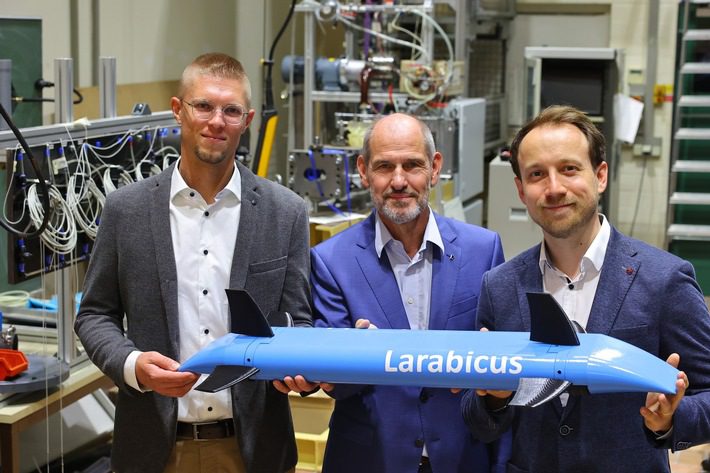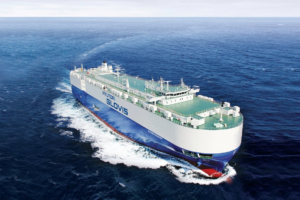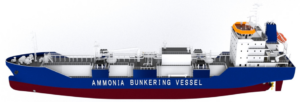
Florian Gerland and Thomas Schomberg from the University of Kassel in Germany and their team have obtained EXIST research transfer funding of Euro 1.2 million for their “Larabicus” project.
They are developing a cleaning robot that keeps ships’ hulls clean of algae and mussels while they are underway.
Merchant ships cover huge distances and have always carried a large number of invasive organisms into foreign ecosystems.
Under the water surface on the ship’s hull, dirt and encrustations like algae or mussels, which form within a few hours or days.
Such a layer of slime increases resistance in the water, thereby slowing down the ship. As a result, more fuel is consumed and CO2 emissions increase.
Named after its ecological role model the cleaner wrasse “Larabicus quadrilineatus”, which frees larger fish from parasites and this is where the Larabicus project comes in: Small robots are supposed to take on exactly this task on the ship’s hull.
The goal is to prevent the formation of a slime layer as far as possible and to keep the surface of the ship’s hull as smooth as possible.
“We are developing a technique that removes the growth gently and over the long term without damaging the paintwork,” explains Thomas Schomberg. Ship paint currently still contains biocides and is therefore highly toxic. “Careful cleaning is essential to ensure that as little of this paint is removed in the water.”
With this innovation, the Larabicus team hits the nerve of the times.
Now that ships are also receiving energy labels, shipping companies are increasingly willing to invest in new, cost-saving solutions. “GreenTech needs investments,” confirms Dr.-Ing. Florian Gerland. “Even if you ignore the ecological benefits of our cleaning robots, the system also offers an economic advantage from the first day of use.”
Schomberg and Gerland are research associates in the Department of Fluid Mechanics.
“I am very pleased to be able to support this innovative project,” emphasizes mentor and department head Prof. Dr.-Ing. Olaf wish. “It is a perfect example of how research in our field can lead to concrete, implementable, sustainable solutions. Larabicus will make a valuable contribution to protecting the climate and preserving biodiversity, thereby making the sustainability strategy of the University of Kassel visible in a special way.”
The technical development of the robots is the focus of Gerland and Schomberg at the University of Kassel.
Larabicus also has an employee in the German city of Kiel who compares and optimizes cleaning methods, and an employee in Hamburg who maintains contacts with network and industrial partners and prepares the market launch of the product.
After winning the UNIKAT ideas competition 2020, the two scientific employees have now applied for funding for outstanding research-based start-up projects with the support of UniKasselTransfer.
UniKasselTransfer is a central facility of the University of Kassel, which, among other things, supports those interested in starting a business in turning their ideas into a business model and in applying for an EXIST start-up grant or EXIST research transfer.
The EXIST research transfer funding program of the Federal Ministry of Economics and Climate Protection supports the transfer and transition of promising research results into a company start-up in two funding phases.
Starting in September 2023, Larabicus will be funded for two years with a total of Euro 1.2 million. The founding of the company is also scheduled at this time.


